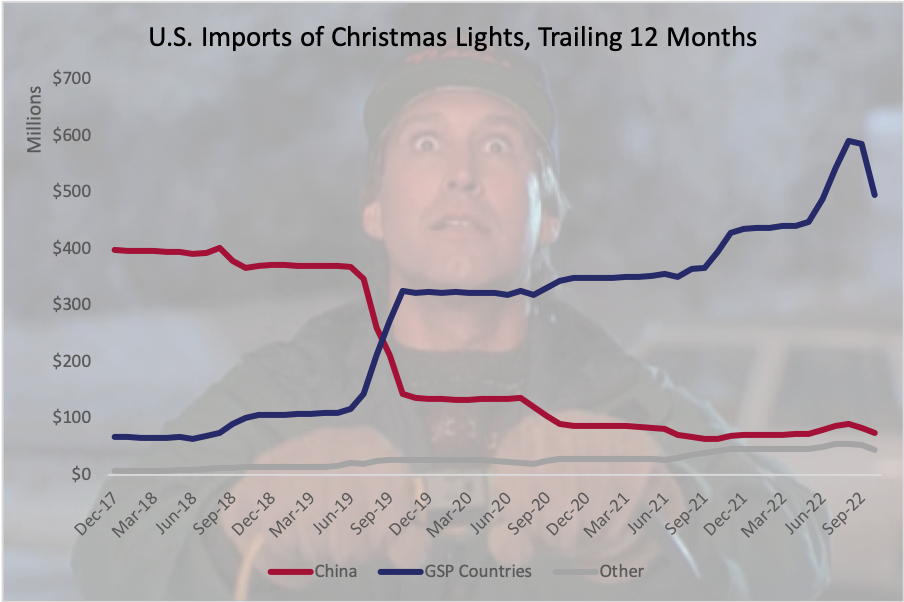If you’ve bought any holiday lights either this year or last – or you’re a Member of Congress or the Administration that wants supply chains to move out of China – then you should hate GSP expiration too.
Fun, old-fashioned family Christmas lights have faced up to $65 million in extra tariffs due to GSP expiration. Those high costs are the result of a few factors: 1) regular tariffs on Christmas lights are high (8%); 2) U.S. imports of Christmas lights from the world are at an all-time high; and 3) GSP countries have become the dominant suppliers as companies seek alternatives to Chinese suppliers, which face 33% tariffs (8% regular tariff + 25% Section 301 tariff).

If U.S. policymakers want to see shifts out of China, letting GSP expire is a no good, rotten way to show it. As recently as 2017, China accounted for $399 million out of $472 million (84%) of all U.S. Christmas lights. Since GSP expired on December 30, 2020, American companies have imported over $830 million in Christmas lights from GSP countries. That works out to almost $7 in imports from GSP countries for every $1 from China. But because GSP expired, each shipment of twinkling holiday cheer gets hit with an 8% tax. Bah humbug, indeed.
GSP renewal shouldn’t be hard: Congress isn’t developing a non-chloric, silicon-based kitchen lubricant here. In fact, GSP’s support is so broad and bipartisan that no sitting Member of the House of Representatives voted against GSP renewal when it last came up in 2018. And yet GSP expiration is about to enter year 3 and American companies already have paid well over $2 billion in extra tariffs.

If Members of Congress are looking for any last-minute gift ideas for American companies, renewing GSP is a good one. Short of full renewal, passing the bipartisan H.R. 8906 would refund over $2 billion to companies that have been waiting on Congress to do something – anything – that provides GSP tariff.
You can buy a whole lot of above-ground pools or Jelly-of-the-Month club memberships with that kind of holiday bonus.
